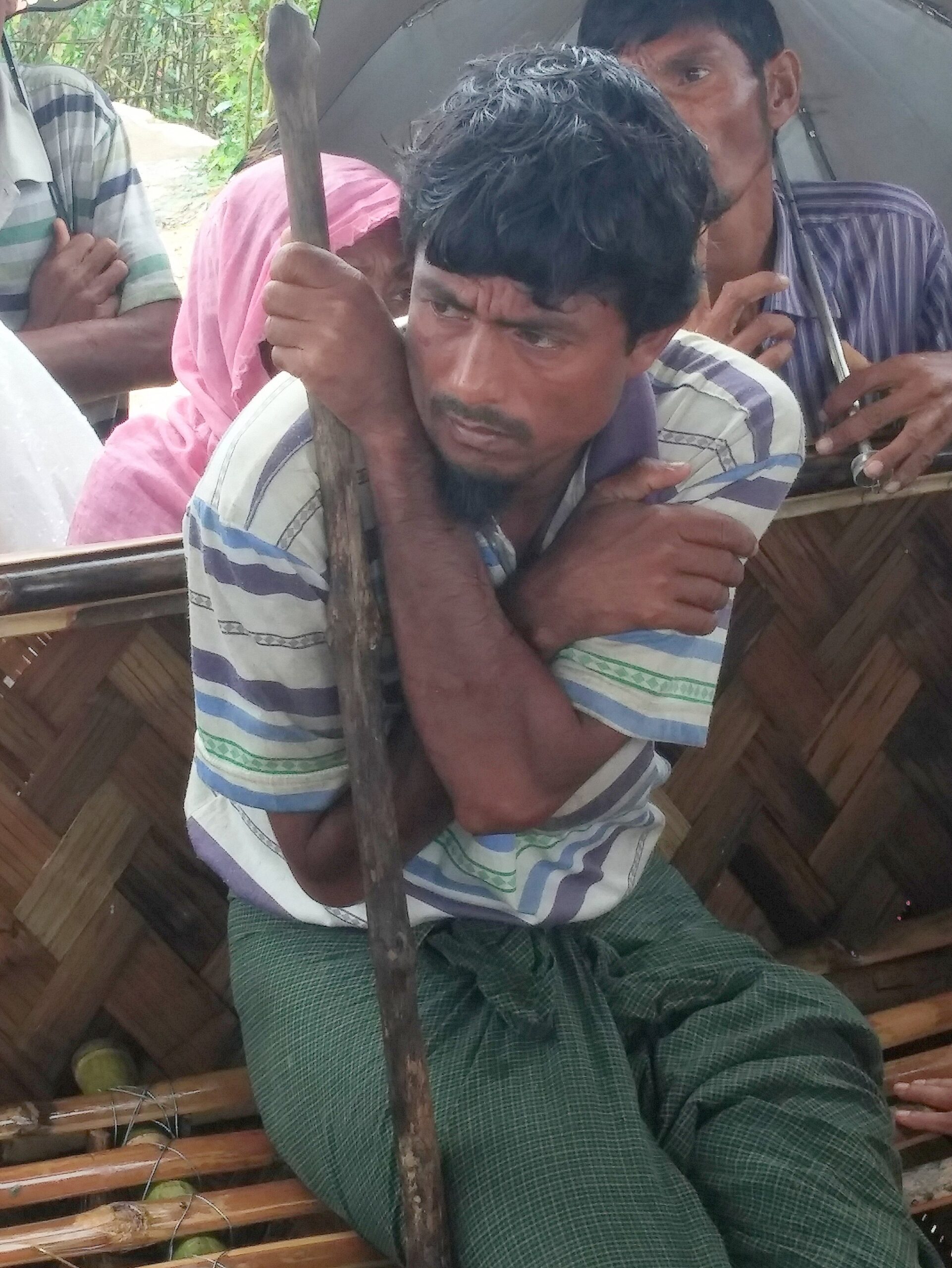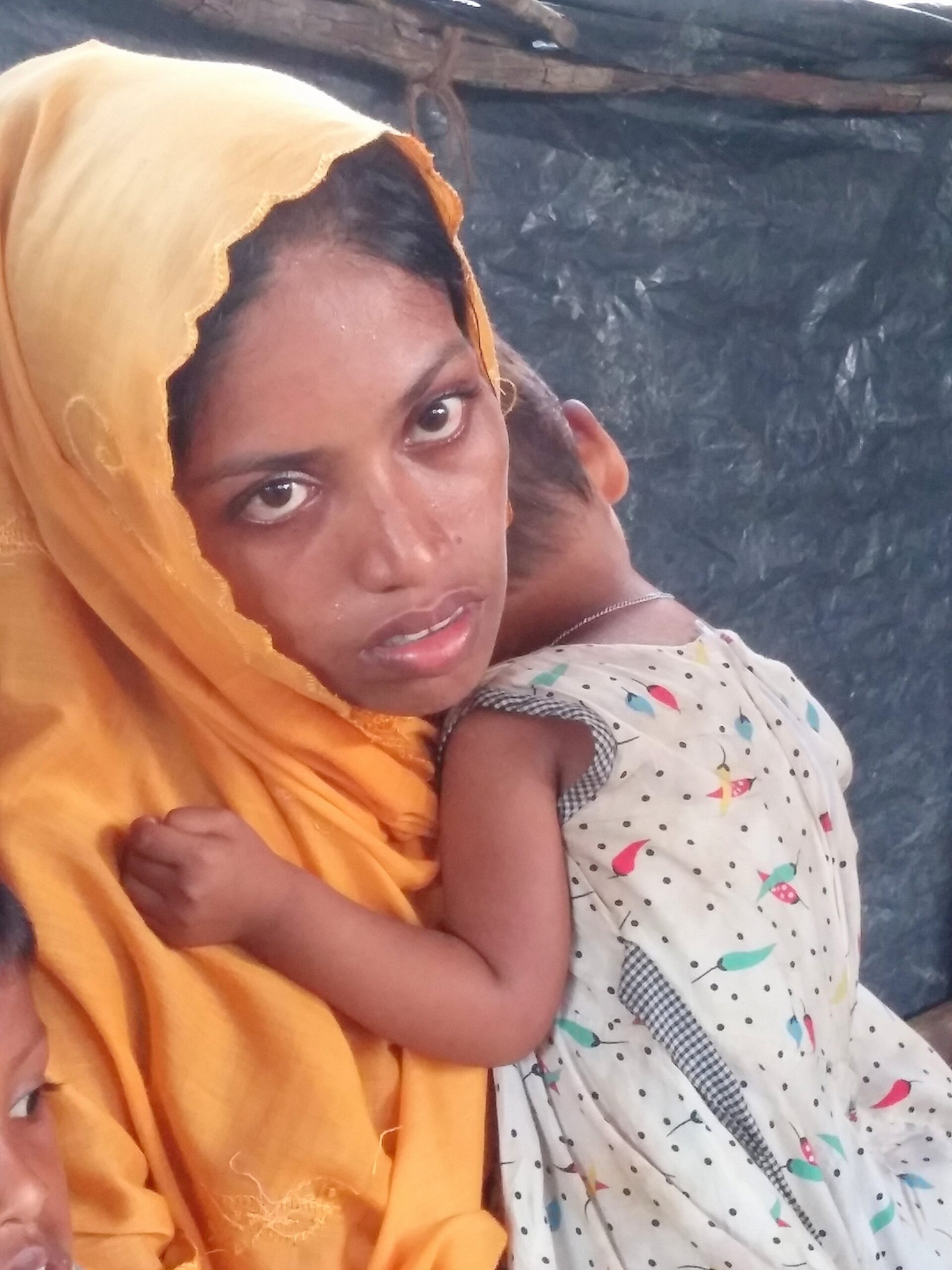Bearing Witness to the Rohingya Crisis

Over a three decade career, I’ve been on dozens of humanitarian and human rights missions, but I don’t remember choking up on any of them – until this current trip to Bangladesh.
Along with RI Senior Advocate Dan Sullivan, I’m in Bangladesh to assess the situation following the violent expulsion of some 400,000 Rohingya from Myanmar (also known as Burma) over the past three weeks
The experiences that were so poignant for me took place on Friday, during a visit to a hospital in Dhaka that provides care for Rohingya refugees who have serious medical cases.
During that visit, Dan and I saw young girls and boys, ages one to 17, who had suffered horrible gunshot wounds inflicted by the Myanmar military, burns, other physical abuse and emotional and psychological trauma that one could only imagine. We spoke to their parents, and witnessed their overwhelming sadness at not being able to protect their kids from such terrible violence. Frankly, there wasn’t much encouraging news we could offer, but I think Dan and I both ended the visit with a profound sense of responsibility about bearing witness to this tragedy.
On Saturday, we traveled to new arrival settlements near the Bangladesh-Myanmar border in southeast Bangladesh. We were in settlements at Kutupalang, Thaing Khali and Balukhali, to examine conditions and talk with refugees who have recently arrived, and tomorrow we will visit additional sites.



Our visits today only further reaffirmed for us the importance of bearing witness. In all the cases about which we’ve learned, villagers were brutally attacked by the military, villages were destroyed, and, throughout the region, men, women and children were killed in large numbers. Each of the Rohingya refugees we met told us that a father, mother, wife, husband, brother, sister, child or other family member had been killed in an attack by the military on their particular village.
The Rohingya people in Bangladesh are experiencing untold suffering. But it was inspiring for us to hear how much they wished to return to their country, Myanmar, when conditions permit. While that will not happen anytime very soon, it is an objective – safe and voluntary return in conditions of dignity – that should animate governments and concerned citizens around the world.
We also saw evidence of the Government of Bangladesh’s willingness to provide refuge to the Rohingya. Borders have generally remained open, and officials are deeply engaged in managing the ongoing emergency effort even as they plan for more durable settlements for the refugees until such time as their repatriation is possible. UN and non-governmental organizations are engaged, and governments of the world must contribute generously to the relief effort.

At Refugees International, we will remain deeply involved in this critical issue in the weeks and months to come.
Latest update from @EricSchwartzRI at the border between #Bangladesh and #Myanmar, where 400,000+ #Rohingya have crossed in recent weeks. pic.twitter.com/9SMAfu2wR2
— Refugees Internat’l (@RefugeesIntl) September 19, 2017
“Extremely challenging” situation for recently arrived #Rohingya refugees, says RI President @EricSchwartzRI from #Bangladesh. pic.twitter.com/3Mo7HCaThe
— Refugees Internat’l (@RefugeesIntl) September 18, 2017
“We are dealing with ethnic cleansing & crimes against humanity of historic proportions,” @EricSchwartzRI says of #Rohingya on @AJEnglish. pic.twitter.com/ezGXplftRT
— Refugees Internat’l (@RefugeesIntl) September 15, 2017
From today’s visit to make-shift #Rohingya camp in #Bangladrsh. #WithRefugees pic.twitter.com/x0lIp5Ypzo
— Eric Schwartz (@EricSchwartzRI) September 18, 2017